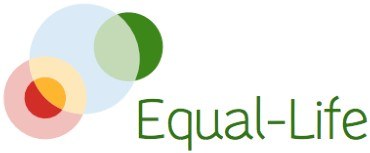Health, demographic Change and Wellbeing - Equal-Life
Introduction
Studying the exposome for a healthier future for all children
Mental health issues have largely been neglected in environmental research, but pose an increasing public health problem in Europe. This is especially true for early childhood and adolescence, as these are vulnerable developmental phases. Thus, differential exposure to physical and/or social environments during childhood may have a profound impact on an individual’s health status as an adult.
The Equal-Life project is as ambitious as it is large, comprising 20 partners from 11 European countries. Between 2020 and 2025, the consortium will examine birth-cohorts of over 250 000 children from seven different countries, as well as longitudinal school data sets and cross-sectional studies from four other countries. The project is coordinated by RIVM (nl).
Project description
Mental health is the result of the complex interplay between genetic, psychological, environmental and other factors and experiences. The exposome concept, referring to the totality of exposures from conception onwards, is emerging as a very promising approach in studying the role of the environment in human disease. The EU-funded Equal-Life project will develop and utilise the exposome concept in an integrated study of the external exposome and its social aspects and of measurable internal physiological factors and link those to a child's development and life course mental health. This will be done using a novel approach combining exposure data to characterise, measure, model and understand influences at different developmental.
Equal-Life seeks to innovate internal and external exposure assessment and data management:
- With specific focus on restorative environments for children;
- The approach will combine aspects of early life physical environments with social aspects of the environment;
- Focus on the sound environment, other aspects relevant for restoration (blue light, access to green, variation) and resilience (household situation, parental styles) and distribution of these environments along the social and economic gradient.
Objectives
Equal-Life will be using data from exposures, effect markers and outcomes of mental health and social and cognitive developments. Additionally, the project will contribute to the development and the subsequent utilization of the exposome concept, by:
- integrating external and social exposome with biomarkers of intermediate effects. Studying a distinct set of effects on (mental) child development;
- characterizing, measuring and modelling the child’s environment at different stages and settings;
- focusing on environments that support child development, rather than negative factors (such as pollutants) only;
- combining physical and social indicators with novel effect biomarkers and using new data sources describing child activity patterns and environments which are relevant for them.
Role of Ghent University
Ghent University will be responsible for refining the definition of physical exposome with respect to mediators (sleep, stress, restoration, cognitive development) for mental health and development of sensitivities and resilience. It will do this by creating innovative exposure models inspired by physics but also data driven, machine learning. UGent will also be responsible to explore the possibility of linking exposome to smart city sound sensor networks. Finally, we will conduct in depth studies on development of hearing and attention during relevant life stage (age 5 till 7).
Website
Contact
Prof. Dr. ir. Dick Botteldooren
Research group WAVES
Phone number: +32 9 2649968
Email
Additional PI's: Prof. Dr. ir. Timothy Van Renterghem; Prof. Dr. ing. Sarah Verhulst

